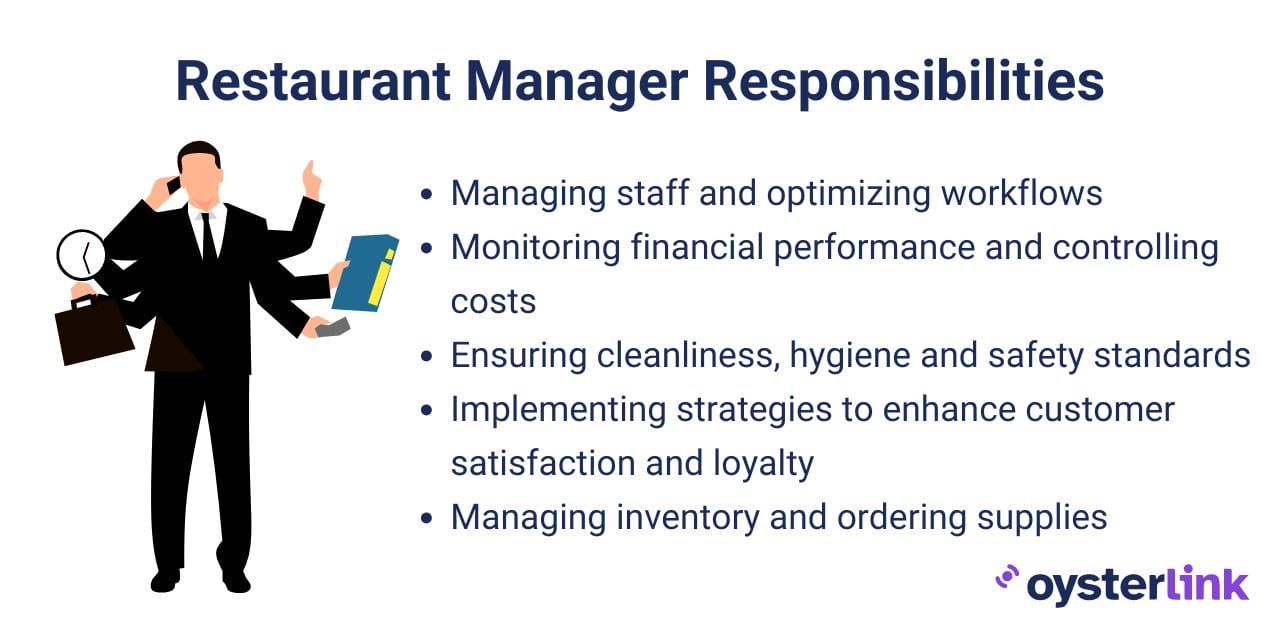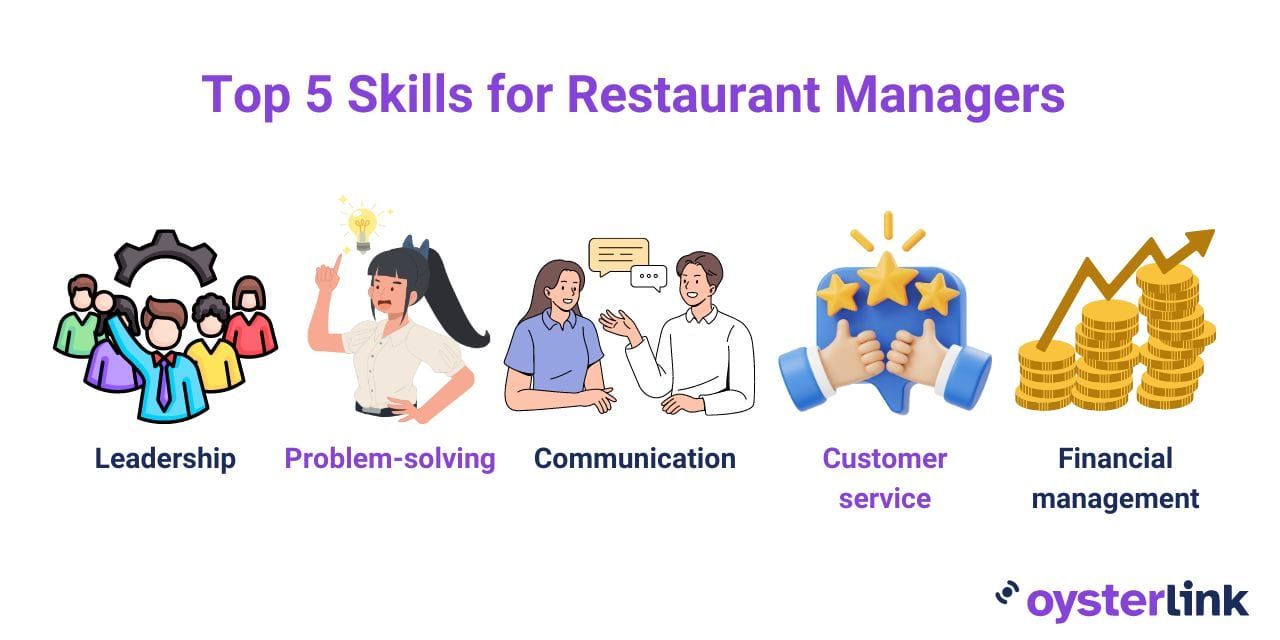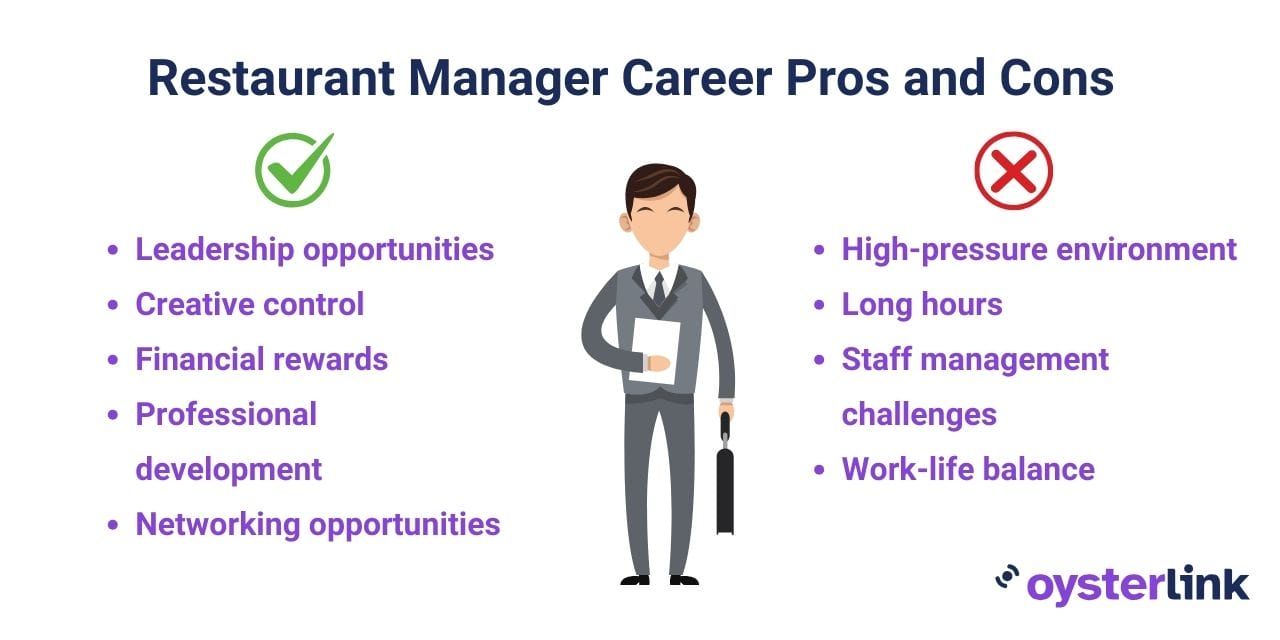Guide to a Restaurant Manager Career
If you're thinking about taking the next step in your career and becoming a Restaurant Manager, you've come to the right place!
This guide will equip you with the knowledge and skills necessary to excel as a Restaurant Manager.
It covers everything from the daily responsibilities and top skills for Restaurant Managers. We'll also go over how much you can earn and the possible career paths you can take.
What Is a Restaurant Manager?
A Restaurant Manager is a professional responsible for overseeing the overall operation of the restaurant. They monitor service standards, address customer concerns and implement strategies to enhance customer satisfaction.
Besides making sure their guests are satisfied, Restaurant Managers also train staff, control inventory, ensure adherence to food safety regulations and manage costs to keep the restaurant profitable.
What Does a Restaurant Manager Do?
The day-to-day responsibilities of a Restaurant Manager include:
- Overseeing restaurant operations
- Training and mentoring staff to maintain service standards
- Managing staff to optimize workflow
- Handling customer inquiries, complaints and feedback
- Conducting regular inspections to ensure cleanliness, hygiene and compliance with safety regulations
- Developing and implementing strategies to enhance customer satisfaction and loyalty
- Managing inventory and ordering supplies to meet demand while minimizing waste at the same time
- Collaborating with Chefs and kitchen staff to maintain menu quality and consistency
- Implementing marketing initiatives to attract new customers and retain existing ones
- Monitoring financial performance and implementing cost-control measures to maximize profitability
- Ensuring compliance with legal requirements and industry regulations

Learn more about the Restaurant Manager's duties and responsibilities by visiting our Restaurant Manager job description page.
Top Skills and Qualities of Successful Restaurant Managers
To thrive as a Restaurant Manager, you should possess the following skills and qualities:
- Ability to successfully lead a team of restaurant professionals
- Strong communication skills to effectively interact with staff, customers and vendors
- Dedication to delivering excellent customer experiences
- Capacity for quick decision-making under pressure
- Ability to effectively juggle multiple tasks at the same time
- Understanding budget management and cost control
- Flexibility to adjust strategies and operations according to changing circumstances
- Familiarity with food safety standards and regulations

Education and Experience Requirements for Restaurant Managers
In most cases, you don't need formal education beyond a high school diploma to work as a Restaurant Manager.
Many Restaurant Managers learn how restaurants operate on the job or through previous working experience in hospitality, often in entry-level roles. This is sometimes seen as more valuable than having formal education during the hiring process.
However, some employers still consider a bachelor's degree in hospitality management, business or a related field as advantageous. If you want to get a college degree in restaurant management, here are some reputable schools to consider:
Restaurant Manager Salary and Earnings Potential
The average annual Restaurant Manager salary in the United States is $69,580, according to the Bureau of Labor Statistics (BLS). This translates into a monthly salary of $5,798.
Washington tops the list as the highest-paying state for Restaurant Managers, offering an average salary of $87,340, while West Virginia ranks at the bottom with an average salary of $51,880.
Restaurant Manager Career Progression
Pros and Cons of Being a Restaurant Manager
A Restaurant Manager career has pros and cons, as does any other career. The pros include:
- Leadership opportunities: Restaurant Managers have the chance to lead and inspire teams of different people, directly impacting their professional growth
- Creative control: They often play a key role in menu development, interior design decisions and creating promotional campaigns. This allows them to express their creativity and contribute to the restaurant's unique identity.
- Financial rewards: Successful restaurant management can lead to substantial bonuses and profit-sharing opportunities.
- Professional development: The role of a Restaurant Manager offers continuous opportunities for learning and growth through industry conferences and workshops.
- Networking opportunities: Managing a restaurant involves having frequent interactions with suppliers, vendors and industry professionals, creating valuable networking opportunities for career advancement.

Here are some cons of working as a Restaurant Manager:
- High-pressure environment: Handling challenging situations such as staff shortages or customer complaints during peak hours can be very stressful.
- Long hours: Restaurant Managers often have to work long hours, including evenings, weekends and holidays. You have to be comfortable with an inconsistent working schedule.
- Staff management challenges: Managing a diverse team of staff members is challenging and it requires possessing strong interpersonal and conflict-resolution skills.
- Work-life balance: Balancing the demands of restaurant management with personal commitments can be difficult, often resulting in limited time for leisure activities.
